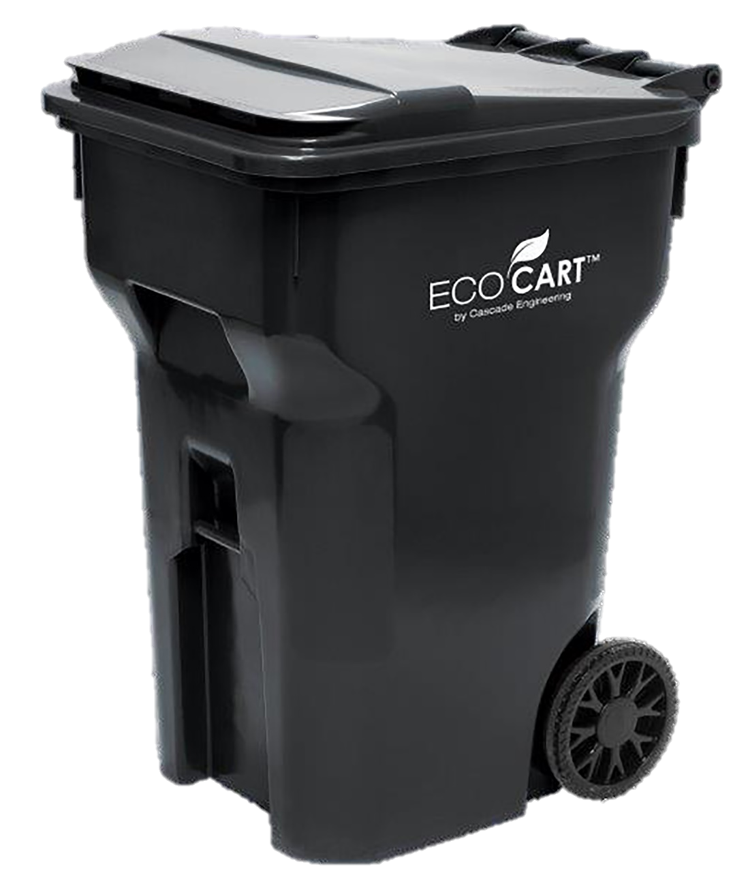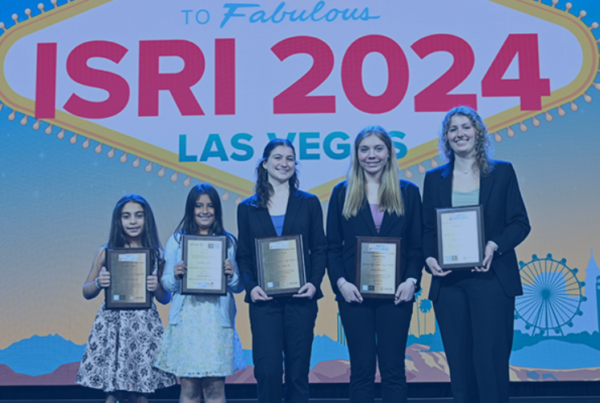This article is from the State of the Industry: Economic Outlook and Impact Study with Presentation of the ISRI Design for Recycling® Award session during ISRI2021. If you would like to watch this session in its entirety, you can still register for ISRI2021 here. This session, along with others, are available to attendees on-demand.
On April 22, ISRI presented its 2021 Design for Recycling® Award to Cascade Engineering for its EcoCart™. The award was presented on the third day of ISRI2021, the association’s virtual convention and exposition. Designed with recycling and recyclability in mind, EcoCart™ is the first recycling cart manufactured with residential bulky-ridged plastics collected at curbside. Cascade uses a closed-loop system to pull hard-to-recycle plastic out of residential recycling programs for use in EcoCart™, which has up to 50% recycled content from used carts and curbside recyclables.
“The EcoCart™ is a recent manifestation of our 40-year-old core philosophy of triple bottom line and sustainability,” says Christina Keller, Cascade’s president and CEO. “We are extremely humbled to receive the Design for Recycling® Award. The previous winners are in an elite class, and we are excited for Cascade Engineering to join that group.”
Cascade released the EcoCart™ early in 2020. Many HDPE carts contain some regrind plastic from retired carts the manufacturer collected in the field. The EcoCart™ adds residential plastics to the mix by incorporating bulky rigid plastics — like laundry baskets or cat litter boxes — also made with HDPE. Evolving scrap import restrictions have left bulkier rigid plastics with limited market options in recent years; the EcoCart™ is one way to make better use of those residential products.
Begun more than 30 years ago, ISRI’s Design for Recycling® initiative encourages manufacturers to consider the final destiny of their products during the design stage. To be eligible for the award, products must be designed or redesigned and manufactured to:
- Contain the maximum amount of materials that are recyclable.
- Be easily recycled through current or newly designed recycling processes and procedures.
- Be cost effective to recycle, whereby the cost to recycle does not exceed the value of its recycled materials.
- Be free of hazardous materials that are not recyclable or impede the recycling process.
- Minimizes the time and cost involved to recycle the product.
- Reduce the use of raw materials by including recycled materials and/or components.
- Have a net gain in the overall recyclability of the product while reducing the overall negative impact on the environment.
Under the leadership of co-chairs Brandi Harleaux of South Post Oak Recycling Center and Maite Quinn of Closed Loop Partners, the award committee in 2021 had tough choices to make in reviewing nominations. The committee spent hours reviewing nominations and interviewing individuals from nominated companies in an effort to select this year’s winner
“As ISRI’s highest honor, the Design for Recycling® Award recognizes those who put recycling and sustainability at the forefront of their product design,” ISRI President Robin Wiener says. “Through the development of its EcoCart™ from the initial concept stages all the way to end of life, Cascade has worked to design with recycling and sustainability in mind, incorporating the Design for Recycling® principles into every element. ISRI is proud to recognize Cascade Engineering as the 2021 Design for Recycling® Award recipient, and we look forward to their continued work toward a circular economy.”
Previous winners include Lexmark in 2020 for the design of its toner cartridges, 95% of which contain post-consumer recycled plastic content, and Nestlé Waters North America in 2019 for the design of its Nestlé® Pure Life® 700ml bottle made from 100 percent recycled PET.
Photo courtesy of Cascade Engineering. Caption: Cascade’s EcoCart™, which is manufactured with residential curbside plastic and bulky rigid plastic.
Additional Resources













